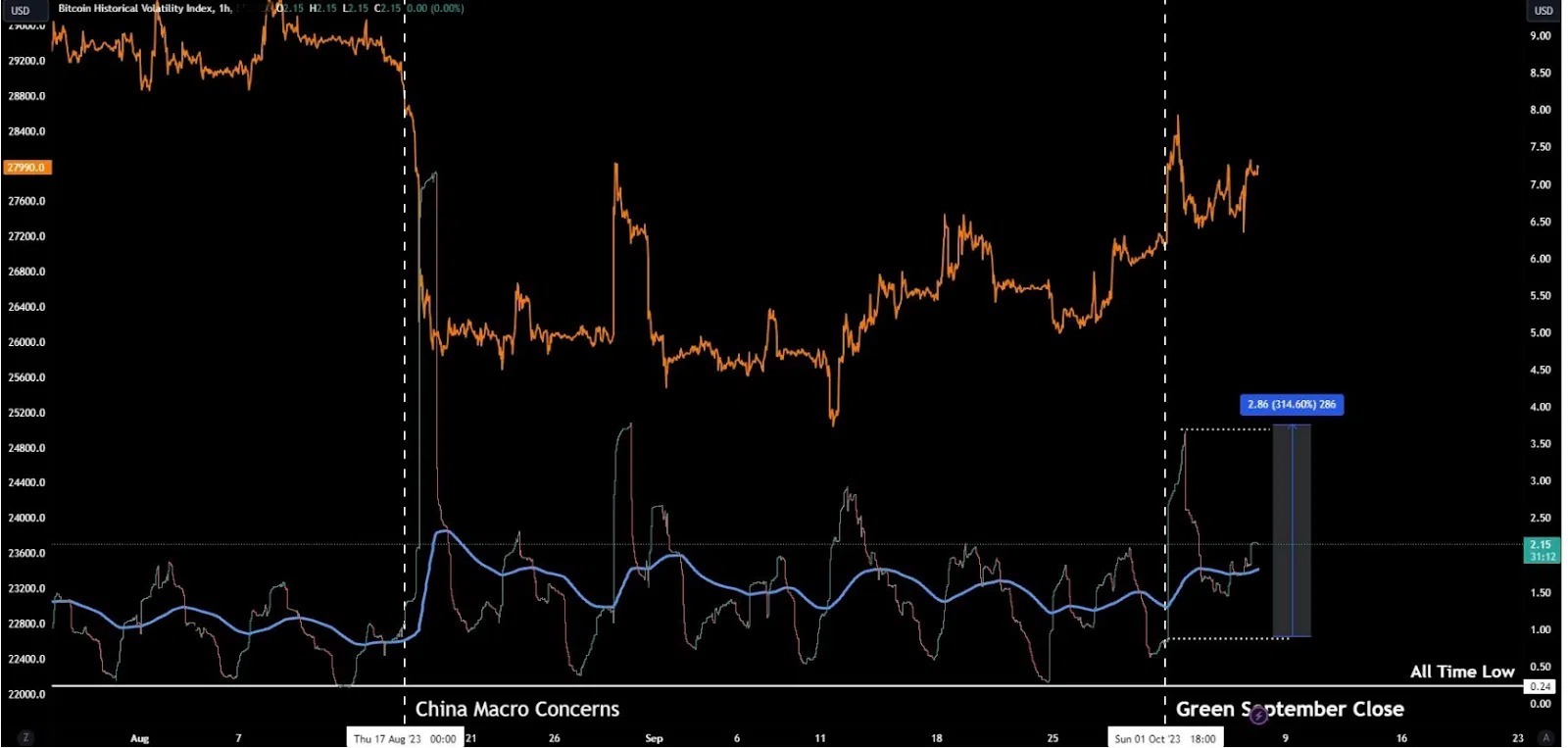Market volatility tends to increase when geopolitical crises such as war or other military conflicts occur. Because, at this time, commodity prices (such as oil and gold) will increase, and investors tend to stay away from risky assets (such as stocks and cryptocurrencies). In other words, investors will aim to reserve more cash to guard against possible fluctuations in the financial markets.
Therefore, with the current geopolitical instability, the crypto community is speculating on how Bitcoin (BTC) and Altcoins will react to this event. Will the Israel-Palestine war cause the same effects as the previous war between Russia and Ukraine?
Speaking about the impact of the Israeli-Palestinian war on the S&P 500, famous cryptocurrency analyst Miles Deutscher said: “Data shows that markets usually recover quickly after wars and geopolitical shocks, despite experiencing initial fluctuations.”
Notably, in the past, although there was uncertainty in the months of conflict, for the most part, the market started to change positively after three months. Specifically, up to 75% of the S&P 500 index had positive developments 12 months after military events.

S&P 500 performance around military conflict between Pearl Harbor in December 1941 and the Iraq War in March 2003. Source: X (Twitter)
Currently, the cryptocurrency market is still quite young. Therefore, it has not had the opportunity to witness major geopolitical conflicts, except for the Russia-Ukraine war. This means we have very little data to determine the individual impact on crypto assets. However, there has been a correlation between Bitcoin and the S&P 500 index.
Along with the S&P 500, Bitcoin is also likely to show volatility over shorter time frames.
In particular, the Bitfinex Alpha report revealed that Bitcoin will experience “increased volatility” in price action.
According to the chart below, historical daily volatility remains above the 200-day exponential moving average (EMA).

Bitcoin Historical Volatility Index. Source: Bitfinex
According to TradingView data, Bitcoin prices have dropped nearly 2% since the Israeli-Palestinian war began last Saturday.
Current BTC price






